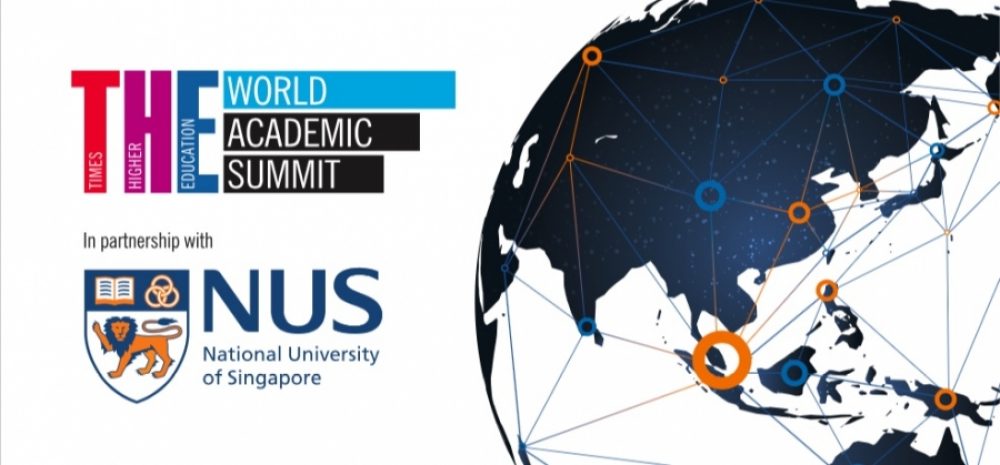APRU reiterated the importance of collaboration in times of geopolitical divisiness at 2018 Times Higher Education World Academic Summit in Singapore, held between September 25th and 27th , hosted by National University of Singapore. APRU’s Secretary General, Dr. Christopher Tremewan, shared APRU’s experiences in leveraging research capacity and building partnership to solve global challenges of the region.
Themed, “The transformative power of research: advancing knowledge, driving economies, building nations,” the session on the 27th challenged participants to look at the value of international networks and how they address global issues. The geopolitics of higher education and research has shifted towards Asian Pacific. As the only university network based in Asia Pacific, whose 50 university members are from 17 APEC economies, APRU is uniquely positioned to aggregate the knowledge and innovation of its members at the international level.
“APRU describes itself as the voice of knowledge and innovation in the APEC region,” said Dr. Tremewan. “Underlying this is a focus on the global common good, a theme that clearly addresses the very urgent tasks of overcoming inequality and rescuing the health of the planet.”
APRU’s effectiveness is a result of its commitment to multilateralism, neutrality and ethical leadership.
“More and more universities are realizing the value they themselves have created in the APRU network,” Tremewan said.
APRU’s vision is to leverage the combined research, education and innovation strengths of its member universities to contribute to solutions to global challenges, develop its own capacity as a collective policy think-tank, raise its members’ visibility, build international influence through extern partnership, and provide opportunities for the international engagement of faculty and students.
Today, APRU counts reputable organizations, such as APEC, UN agencies, Elsevier, Google, Wiley, The New York Times, and the ADB as collaboration partners. The ability to operate in a de-centralized manner with members embedded in a wide diversity of contexts is APRU’s advantage in tackling the complex nature of challenges in a polarised international situation.
“Now, more than ever, is the time for fast-moving networks that provide connectivity across borders of nation, culture, discipline, sector, political and economic power. This new salience of the super-connector function has huge potential because it is so badly needed,” said Tremewan.
The increasing economic integration of the Asia-Pacific region calls for bigger potential for collaboration on scientific research and on advising government and business in the region. In his closing remarks, the Secretary General emphasized on the importance of an electrifying network that counteracts passive modes of internationalization in higher education.
Dr. Tremewan and Rector Muhammad Anis, a fellow panelist of Universitas Indonesia, participated in the session chaired by The University of Tokyo. NUS, Universitas Indonesia and The University of Tokyo are members of the Association of Pacific Rim Universities.
2018 Times Higher Education World Academic Summit provides a platform for university leaders and renowned experts to gather and share their discovery of new knowledge, and to inspire innovative ideas on how new knowledge can impact global society, and contribute to economic and societal advancement.

